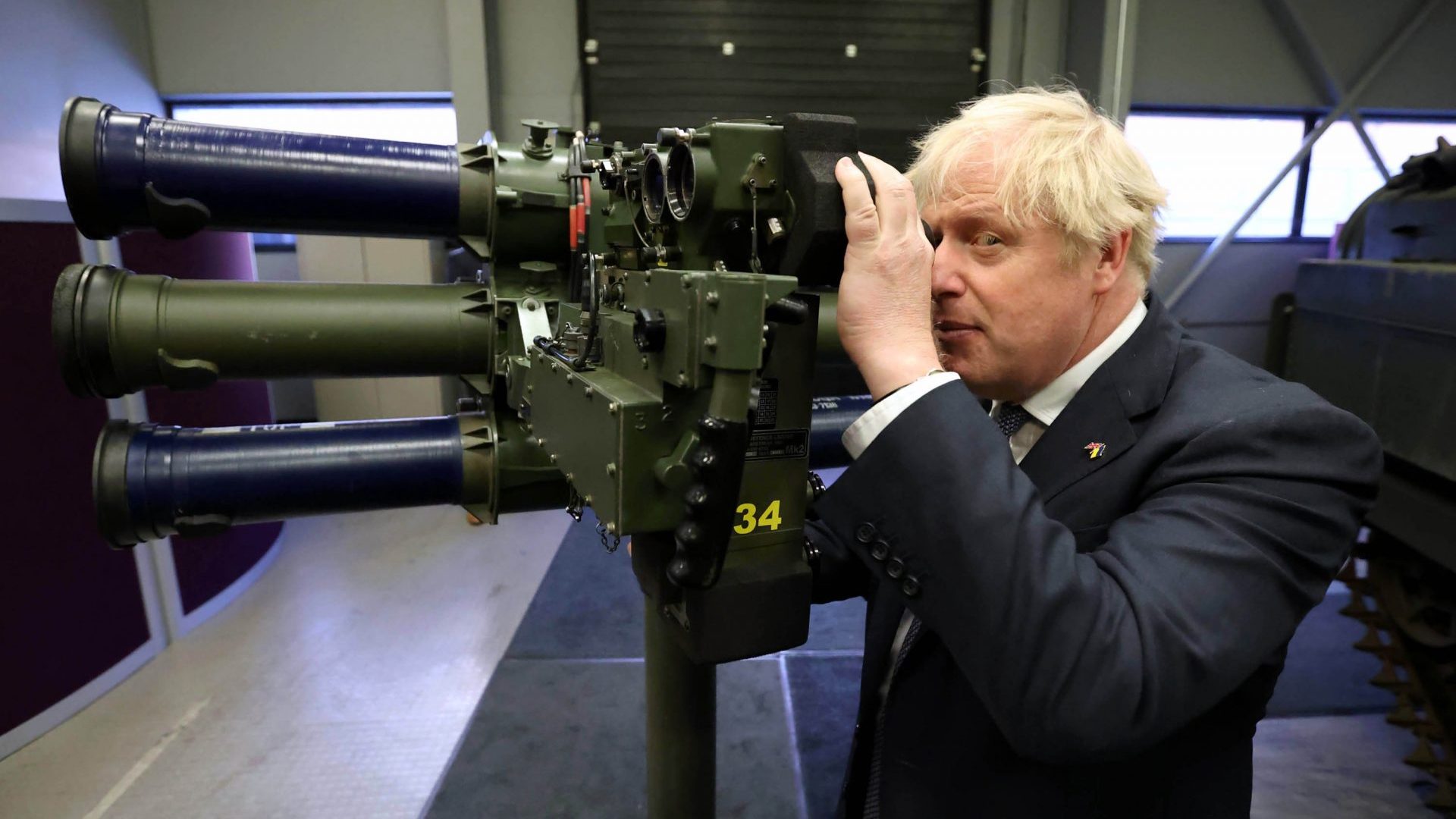“We are all sitting on our hands, waiting for the next bombshell,” says a senior government official from an EU member state that historically has been one of the closest to the UK. “Ultimately, for as long as he’s around, it’s about damage limitation.”
I was talking to the diplomat (not a German, for a change), about Britain’s standing in Europe and in the wider world a few days before the Conservative MPs’ vote of confidence that provided a vote of little confidence in Boris Johnson.
It would be wrong to say that most European countries would have got rid of Johnson by now. For many reasons – including proportional representation and an aversion to populists without a regard for the details of governing – they would have never had him in the first place.
But now Europe is stuck with him, for a while at least, and most foreign governments are battening down the hatches, on the basis of hoping for the best but always planning for the worst.
The worst now happens with alarming regularity. Johnson is not only prepared to fight the EU to get his way, but he defines his beleaguered premiership through his antagonism towards the UK’s erstwhile close partners.
The introduction of a bill overriding large chunks of the Northern Ireland Protocol marks a dramatic escalation. It sends a whole series of messages to European governments demonstrating how defiantly differently he is operating from them. This trend will only increase as Johnson seeks to prolong his tenure for as long as possible.
In any choice between moderation and the extremist flank in his party, the European Research Group (ERG), he will opt for the latter. He is prepared to ride out any pressure from the Biden administration. He has little interest in the actual politics of Northern Ireland; he believes blithely that whatever he does the Good Friday Agreement will somehow hold; he is quite comfortable with “playing” the main Unionist party, the DUP, for his purposes; he quite enjoys being berated by the government in Dublin, which has described London’s latest machinations as a “historic low point”. He believes the more he talks about Europe, the more battles he picks, the more he discomforts the dithering Labour leader, Sir Keir Starmer.
Most of all he is quite happy breaking international law – and all the consequences that brings to Britain’s reputation in the world. This prime minister is not remotely bothered by accusations of hypocrisy (after all he agreed, signed and lauded the Brexit agreement with the protocol at its heart) or of dishonesty.
Far from learning any lessons from the no-confidence vote, Johnson is doubling down, seeking “wedge” issues wherever he can and telling untruths whenever he needs to. Hence legislation ripping up a negotiated settlement is described as a “relatively trivial” set of “bureaucratic” changes. “We used to assume a certain stability, reliability in British policy,” says another London-based European diplomat. “Now you can assume nothing.”
This observation encapsulates two problems: first, the near impossibility of dealing with the UK; second, the misunderstanding by EU nations of the current state of British politics. Because they could not remotely countenance something as absurd as Johnson occurring in their own country, they struggle to understand how to deal with it.
At the FCDO, as the Foreign Office now demands to be called, they are superimposing a method to the Brexit madness. Mayhem is now not just a necessary, but surmountable, byproduct of the decision to leave the EU. British diplomats have taken to describing unpredictability as the strategy itself, as a virtue. They do so with a straight face. Think of the taxi market. “We like to think of ourselves as the Uber of foreign policy,” one told me. “We see disruption as a good in itself.”
This is the thinking, and it bears scrutiny. According to this argument, traditional foreign policy is being hampered by three major impediments. First, many international institutions are no longer fit for purpose. The United Nations Security Council, formed as part of the stunningly impressive postwar settlement, can no longer do effective business because of the veto rights accorded its permanent members. In other words, Russia and China will stymie any progress. This long pre-dated the invasion of Ukraine. This also applies to other bodies such as the World Health Organisation and World Trade Organisation and to the more recent invention, the G20. Which leaves only Nato and the G7 (now denuded of Russia), but their problem is that they preach to the converted.
The second problem is that public opinion is far more preoccupied with domestic issues and that an embattled Johnson will focus most of his energies on the domestic agenda, leaving the more intricate work of foreign relations to others, while looking for one or two dramatic “big wins”.
The third point is the most intriguing. It is that populist disrupters get things done, whereas advocates of consensus take too long and may even, through too much analysis and too much triangulation, fail to get there. This is the maverick Winston Churchill argument dusted off to proclaim Johnson’s response to the Ukraine crisis.
Yet it may also contain some inconvenient truths, as the Financial Times commentator Janan Ganesh pointed out earlier this month. There are times, he said, when populism “fits the circumstances better than a more considered approach, such as the clever-clever rationalisations of realpolitik, which might have left Ukraine high and dry for the sake of a short-lived ‘stability’. It is precisely the crudity of populism that has come in useful.”
This argument compares and contrasts Johnson’s approach with that of Olaf Scholz’s painfully slow assistance to Ukraine and Emmanuel Macron’s blithe assertion that Vladimir Putin should not be humiliated. The traditional post-1945 paradigms of diplomacy, Ganesh argues, can “hedge, over-analyse and treat conflict as some kind of aberration. There is something to be said at times for a more primitive approach.”
The high priest of primitivism may not even be Johnson, but his foreign secretary, Liz Truss. In her recent Mansion House speech, she extolled the virtues of Brexit, not just in and of itself, but because it enables the UK to act more nimbly, without having to cross-check with 26 other states. Ministers make a virtue now of looking bored at international conferences. The UK, she declared, is prepared to “do things differently, to think differently and to work differently… to get things done”.
Primitive is one way to call the approach; cavalier another. Truss and Johnson would be happy to be described as disruptive, activist, best still entrepreneurial. The landing page of the government’s Ukraine microsite more resembles a charity appeal. “Find out how you can help,” it adds.
Believing himself liberated from his pesky MPs for one more year, Johnson will be looking for more eye-catching moments that play to his base and indulge him in his Churchillian delusions. Ukraine allows him to do that. One of Downing Street’s first actions following the narrow confidence-vote victory last Monday evening was to broadcast a statement from Volodymyr Zelensky, the Ukrainian president, expressing his happiness at Johnson’s survival.
Expect more mutual love-ins; expect another highly choreographed “secret train” trip. This will be a win-win for the PM, as Labour has pledged wholehearted support. It also allows him to select other European countries to work with, who have also been staunch in their support of Ukraine.
All foreign ministries, all embassies, have to deal with the world as they find it. For diplomats, the more difficult the posting, the more exciting the assignment. London is now seen as a greater challenge, requiring greater skills than before.
Each European state looks for areas of bilateral relations where they can do business with the UK, while making clear they have no intention of overriding the position of the European Commission. One of the EU’s remarkable achievements since 2016 has been its unity in the face of constant provocations. They will deal with Britain on Russia, Iran, China and a host of other issues. They do so while holding their nose. “Everyone knows we have to hold the line,” says one diplomat. “But it’s painful.”
The chances of the EU granting concessions on the protocol have dropped to close to zero. The government’s actions this week have put paid to that. Will the legislation be stymied in the Lords? Will the courts intervene? Don’t hold your breath.
Is Johnson a lame duck? The answer for Europe is that, in the short term at least, it doesn’t really matter. For as long as he is there, they will have to deal with him. The wiser heads anticipate, or at least are preparing worst-case scenarios, that this Houdini of a PM will last until the next general election – and possibly even scrape it.




